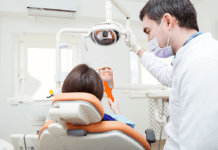Orthodontics make teeth straighter. It is often assumed that straight teeth will make patients more confident, and therefore more optimistic and happier. Researchers in Australia recently put that assumption to the test.
The Study Design
The study followed a cohort, or group, of adolescents in Australia. The children were chosen in the late 1980s when they were 13 years old. Over time, more than 30% of these adolescents were treated with orthodontics. Researchers compared psychosocial measures for members of the cohort who had ortho and those who did not.
The Results
The study looked at four psychosocial measures:
- How well participants felt they could take care of their own health
- How well participants felt they coped with new situations
- How optimistic they felt
- How much support they receive from their social networks
Members of the cohort who did not have ortho scored higher on these psychosocial factors. The researchers found that brushing daily and general dental hygiene was linked with higher psychosocial scores. Orthodontics did not have an effect on any of these factors, according to the research.
Even though only 30% or so of the cohort had ortho, many of those who did not have orthodontic treatment should have. Since members of the cohort who did not have ortho also had misaligned teeth, the researchers felt that assessing the psychosocial measures of the cohort would be a fair assessment of how ortho impacts happiness and optimism later in life.
Limitations
While the results of this study are interesting, it suffers from a few limitations. First, the cohort that the researchers followed was picked a long time ago. Cultural and historical factors unique to their generation could be influencing the results. That means that although the findings may be true for this cohort, they might not be true for all people.
There could also be other factors at play in a person’s self-confidence level that has nothing to do with straight teeth, or with dental health at all. It could be that the people who reported higher levels of optimism in the follow-up surveys are actually optimistic due to their upbringing, or other influences. It’s also possible that they’re not more optimistic at all. The risk of using a self-reported measure in any study is that people can’t always accurately describe themselves.
Why Orthodontics Are Still Important
One thing researchers in this study didn’t address is that braces aren’t just for appearance. Misaligned or overcrowded teeth may be more prone to tooth decay. Patients can face serious consequences if they don’t get necessary orthodontic treatment. Untreated orthodontic issues can cause occlusion and mastication issues, headaches, and more. The researchers did not look at any type of physical consequence of not having ortho. Some of the negative effects of untreated orthodontic issues manifest later in life. That means that the part of the cohort that did not straighten their teeth may experience negative psychosocial issues later when these consequences make themselves known.
It’s important that dental professionals understand how treatments affect patients. The results of this study suggest that orthodontic treatment for cosmetic reasons might not make people happier later in life. If this is the case, dental professionals should consider this when recommending treatment. However, the results of this study need to be validated on a larger population before any real conclusions can be drawn.












